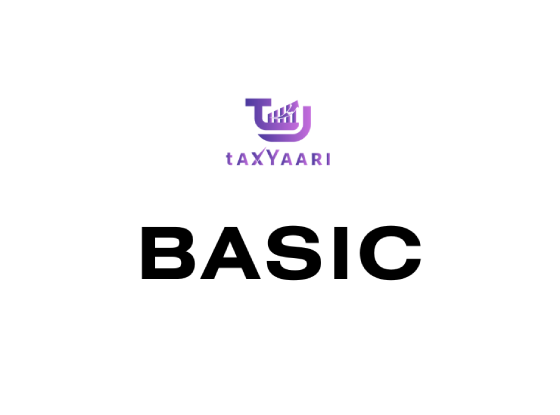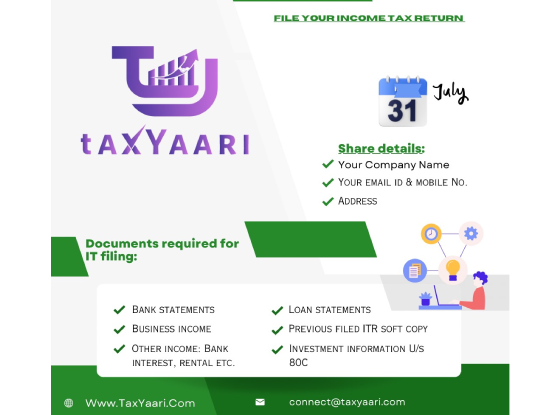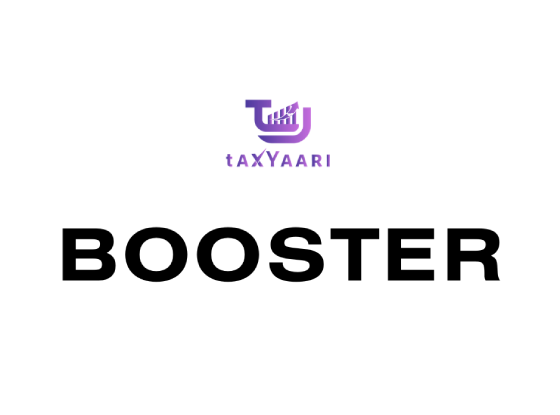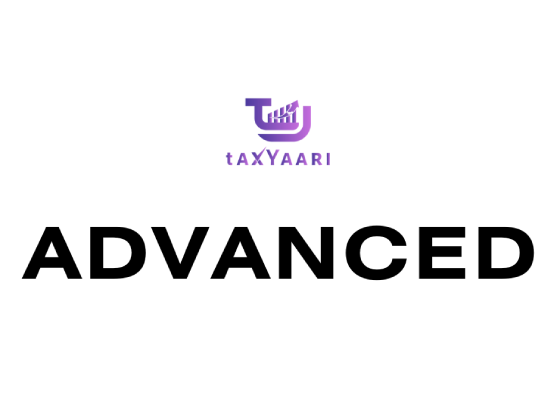Income Tax Returns
Income Tax Returns
Simplify your tax obligations with Taxyaari’s Income Tax Return filing service. Our experts handle the preparation and filing of your returns, maximizing deductions, ensuring compliance, and helping you avoid penalties. For more details on the service and the processes involved, please refer to the FAQs below.
Couldn't load pickup availability




FAQs
1. What is an Income Tax Return (ITR)?
An Income Tax Return (ITR) is a form used by taxpayers to report their taxable income earned during a financial year and calculate the tax liability or refund owed to the government. It is a document filed with the Income Tax Department, providing details of income, deductions, and taxes paid by the taxpayer.
2. Why is filing an Income Tax Return important?
Filing an Income Tax Return is mandatory for individuals and entities whose income exceeds the threshold limit specified by the Income Tax Department. It is essential for compliance with tax laws and regulations and ensures accurate reporting of income and taxes paid. Additionally, filing an ITR allows taxpayers to claim deductions, exemptions, and refunds, if applicable.
3. Who is required to file an Income Tax Return?
Individuals, Hindu Undivided Families (HUFs), companies, partnership firms, LLPs, and other entities whose total income exceeds the prescribed threshold limit are required to file an Income Tax Return. Even if the income is below the taxable limit, individuals may still need to file an ITR to claim refunds, carry forward losses, or meet other compliance requirements.
4. What are the different tax return options for individuals?
There are various types of tax return forms available for individuals depending on your income level and sources of income, such as salary, rental income, business income, sale of equity shares, mutual funds, interest on savings bank, fixed deposits, and recurring deposits. The applicable forms for individuals are ITR1, ITR2, ITR3, and ITR4. It's important to choose the right form for your situation to ensure accurate filing. For a detailed guide on selecting the appropriate tax return form, check out our blog https://www.taxyaari.com/blogs/news/various-itr-options-for-individuals-for-the-current-year-ay-2024-2025
5. What documents are required for filing an Income Tax Return?
The documents required for filing an Income Tax Return may include:
- Form 16 (for salaried individuals)
- Income statements (salary slips, bank statements, rent receipts, etc.)
- Investment proofs (such as receipts for LIC premiums, PPF contributions, etc.)
- TDS certificates, if any
- Details of other income sources (rental income, capital gains, interest income, etc.)
- PAN card, Aadhaar card, and other identification documents
- Any other relevant financial documents and proofs of expenses and deductions.
6. What is the due date for filing Income Tax Returns?
The due date for filing Income Tax Returns (ITR) varies depending on the type of taxpayer and the nature of income. For individuals and HUFs not required to undergo tax audit, the due date is usually July 31st of the assessment year. For taxpayers subject to tax audit, the due date is typically September 30th.
7. What happens if I miss the deadline for filing my Income Tax Return?
If you miss the deadline for filing your Income Tax Return (ITR), you can still file a belated return within a specified period. However, filing a belated return may attract penalties and interest charges, and you may lose certain benefits such as carry forward of losses. It is advisable to file your ITR before the due date to avoid such consequences.
8. Can I get assistance with filing my Income Tax Return?
TaxYaari.com offers expert assistance in Income Tax Return filing, providing guidance on tax planning, deductions, and exemptions, ensuring accurate reporting and compliance with tax laws and regulations. Our experienced professionals simplify the filing process, minimize errors, and maximize tax benefits for individuals and businesses, helping them fulfill their tax obligations efficiently and effectively.




